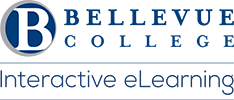What is Academic Dishonesty?
Academic dishonesty at Bellevue College includes but is not limited to cheating, plagiarism, and fabrication.
- Cheating includes any attempt to give or obtain unauthorized assistance to complete an academic assignment. This can consist of working with a classmate on homework or a take-home test without permission from the instructor.
- Plagiarism includes using another person’s ideas, writings, or work without proper citation to complete an academic assignment. It can also include submitting projects, papers, and other assignments for credit when you have submitted the same assignment for credit in another course. The Academic Success Center offers tips for avoiding plagiarism.
- Fabrication includes falsifying data, information, or citations in completing an academic assignment. It also includes providing false or deceptive information to an instructor about completing an assignment.
Other types of dishonesty are also prohibited. These could include, but are not limited to:
- Forging, altering, or submitting falsified (fake) documents. Examples include developing a parent, instructor, or counselor’s signature on registration forms.
- Misusing any college document, record, or instrument of identification.
- Tampering with an election conducted by or for college students.
- Furnishing false information or failing to provide the correct information in response to the requestor requirement of a college officer or employee. The most common example is giving a fake name to avoid trouble.
Last Updated August 10, 2022
